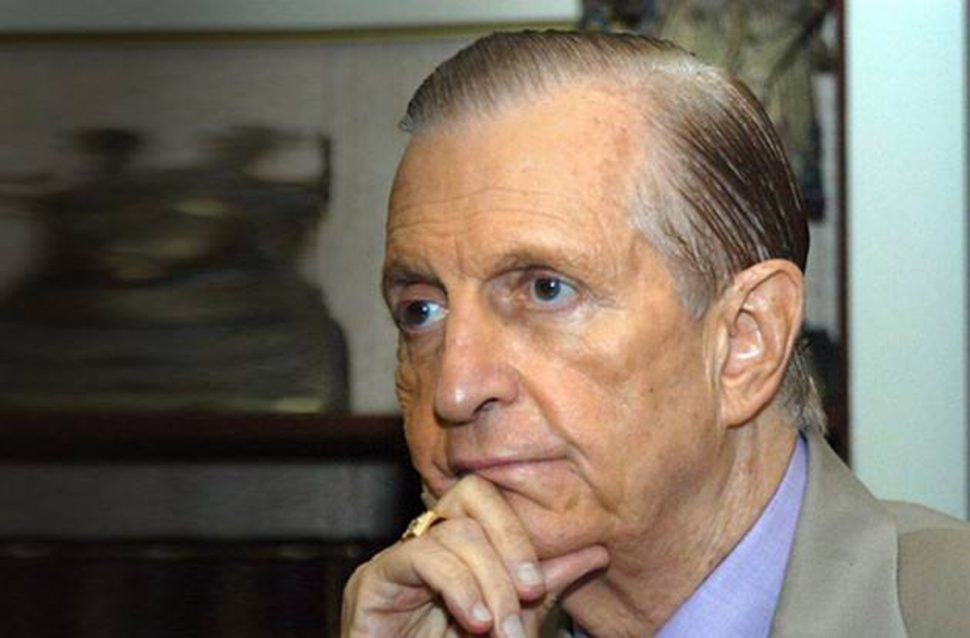(Jamaica Observer) KINGSTON, Jamaica — Prime Minister Andrew Holness announced this afternoon that State protocol has already been engaged, and that the body of former Prime Minister Edward Seaga will be flown back to Jamaica “at the earliest possible time”.
“We expect that he will be accompanied by his wife and other family members, and he will be received by the government with the appropriate honour guard in place,” Holness told the House of Representatives.
He said that Seaga’s body will lie in state over a period of time for mourning prior to his state funeral, and there will also be a special sitting of Parliament to allow members to pay tribute to him and his achievements.
Seaga died today on his 89th birthday surrounded by his family, friends and a team of Jamaican doctors who had been fighting to keep him alive since early May.
The government confirmed his death this afternoon, noting that he had died at approximately one o’clock.
Speculation had been, for the past week, that the globally respected Jamaican politician was close to death, however family and friends stayed and prayed with him hoping that he would overcome his latest challenge and return home.
Seaga was the second person to lead the ruling Jamaica Labour Party (JLP), which was founded by the late National Hero, Sir Alexander Bustamante, but he was the longest serving leader of the party he headed for 31 years, 1974 to 2005, compared to Sir Alexander’s 24 years as leader (1943 to 1967).
He served as Prime Minister for nine years, 1980-1989, and as Leader of the Opposition from 1989, when he was defeated at the polls by his political nemesis, Michael Manley.
Seaga is best remembered for challenging the democratic socialist policies of the then leader of the opposition People’s National Party (PNP), Manley, in the 1970s and defeating Manley by a 51-9 seat landslide in 1980. He lost his first general election as leader of the JLP in 1976, an election marred by a state of emergency called by Manley.
However, Seaga’s efforts to re-energise the Jamaican economy, wrecked by mass immigration of Jamaicans, mainly business investors, fearing a socialist economy floundered in the late 1980s after he fell out with the International Monetary Fund’s (IMF), and Manley was returned to power in 1989.
Born Edward Philip George Seaga in Boston, Massachussets, where his parents were staying at the time of his birth, he was brought home shortly after he was born and schooled at Wolmer’s High School for Boys in Kingston.
He eventually went to Harvard where he studied anthropology, and on his return home did immense research into Jamaican cultural practices including Revivalism, an Afro-Jamaican religion which has resisted change for centuries despite being generally despised in the society.
Seaga was also recording company executive, after purchasing the local distributor, West Indies Recording Limited (WIRL) from its Barbadian owners. He recorded a number of major Ska hits with artistes such as Higgs and Wilson, before selling the company to Byron Lee who eventually turned it into Dynamic Sounds Limited, the leading record distributor in Jamaica in the 1980s to1990s.
He entered politics in 1959 and immediately made his mark as a member of the Legislative Council, now the Senate, with his famous centrist/liberal speech about the economic and social differences between “The Haves and The have Nots”.
Seaga also played a major role as one of the founding fathers in the framing of the Jamaican Constitution in 1961, which led to far-reaching constitutional reforms.
He initiated a review of the human rights section of the Jamaica Constitution, to provide for a Charter of Fundamental Rights and Freedoms; created the post of Public Defender; and pushed for the curtailment of some of the powers of the Prime Minister to provide a balance of power between the executive and Jamaica’s Westminster-type parliament. That charter was eventually included in the Jamaica Constitution during the JLP administration of 2007/2011.
He chose the most impoverished urban constituency of the period, Western Kingston, which included the infamous “Back-O-Wall’ in the 1962 pre-independence election, defeating the PNP incumbent, and was appointed to the portfolio of Minister of Development and Welfare, which gave him the power create a number of platforms for the country’s economic development, as well as organise the country’s cultural development through the Jamaica Cultural Development Commission (JCDC) and his pet project, Jamaica Festival.
After the JLP lost the General Election to Manley and the PNP in 1972, despite a number of years of significant growth in the economy, Seaga, withdrew from any major political role, although he remained loyal to his Western Kingston constituents.
He was coaxed back into the party in 1974 and became its leader and successor to Bustamante, despite the limited terms of Sir Donald Sangster (1967) who died months after being named Prime Minister and Hugh Shearer who succeeded Sangster as Prime Minister after an internal party poll.
However, Seaga’s triumphant return to an active role in the party in 1974 forced it to elect him as leader, a position which had been made vacant since Sir Alexander’s exit in 1967.
Seaga told the Jamaica Observer in an interview a few years ago that his greatest triumph was leading the JLP to victory in 1980, suggesting that if the election had gone otherwise Manley and the PNP would have led the country into an experiment with socialism or communism.
He is survived by his wife, Carla Frances Vendryes, whom he married in June, 1996, and his youngest child a daughter, Gabrielle, who was born on September 6, 2002. He married his previous wife, Marie “Mitsy” Constantine, Miss Jamaica 1965, in August 1965, and they had two sons, Christopher (adopted) and Andrew, and a daughter, Anabella. That marriage was dissolved in 1995.

